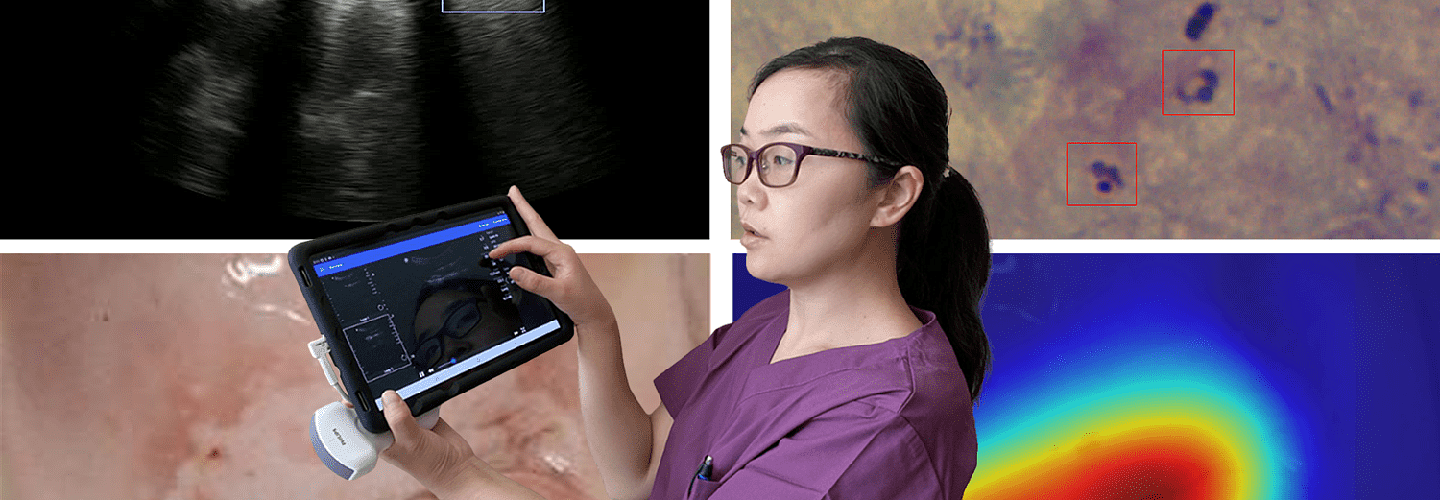
Research Focus | Biomedical Artificial Intelligence
Biological systems are the most complex entities in the known universe. Patterns are discernible in their complex states and in the interactions among their components. Machine learning is a branch of Artificial Intelligence that shows how machines can learn patterns from data with minimal human input. Machine learning has proved to be an invaluable tool in modeling these complex systems, as the patterns may be difficult or impossible for humans to perceive reliably. Machine learning enables a host of predictive capabilities, which include diagnosis of disease from medical images, prognosis of risk and therapeutic response from patient data, protein function prediction from amino acid sequence, design of novel proteins, and optimization of biomaterials. In these and other domains, machine learning has been harnessed to improve human health and advance sustainability.
Major problems we are trying to solve:
- Automated detection and diagnosis of disease from medical images.
- Automated histology and immunohistochemical image analysis.
- Prediction of health risks and therapeutic response through data science.
- Predictive models of protein sequence-function relationships.
- Design of novel proteins with unique properties for therapeutics.
- Optimization of biomaterials for medical devices and therapeutic delivery.
Participating Research Groups
- Medical image analysis.
- Prediction of therapeutic response (Guldberg).
- Protein engineering (Hettiaratchi, Hosseinzadeh, Plesa).
- Computational methods (Cresko, Hosseinzadeh).
- Optimization of biomaterials (Dalton, Hettiaratchi).
- 3D printing of functional biomaterials (Dalton, Gardner, Guldberg, Ong).
Bioengineering Program Faculty — Biomedical Artificial Intelligence
UO Collaborators
*Images reproduced with permission of Global Health Labs, LLC and Oregon Health & Science University.
Upper-Left: Mehanian, et. al, “Artificial Intelligence-based Automated Interpretation of Lung Ultrasound Images of Pneumothorax, Pleural Effusion and Pneumonia: Results from Human Studies,” 2019 Military Health System Research Symposium.
Upper-Right: Horning et. al, “Limitations of Hemozoin as a Diagnostic Biomarker for Malaria,” 2014 IEEE Global Humanitarian Technology Conference.
Bottom Two: Hu et al. “An Observational Study of Deep Learning and Automated Evaluation of Cervical Images for Cancer Screening”, Journal of National Cancer Institute, vol. 111 (9), 2019.
